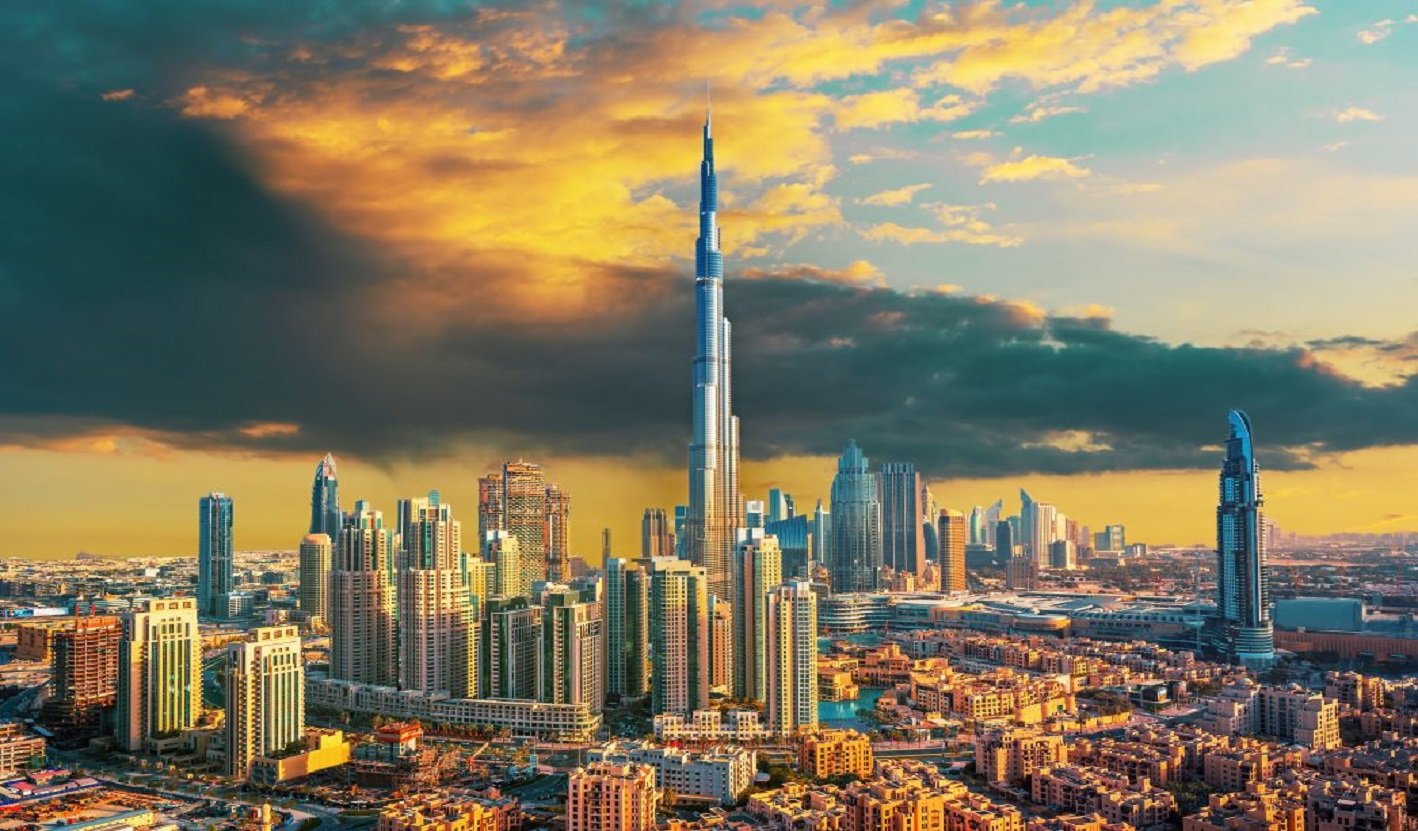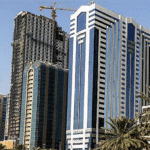Dubai has become one of the world’s most popular destinations for foreign property investment. The city’s stunning skyline, world-class infrastructure, and luxury lifestyle make it an attractive choice for individuals looking to buy property. If you’re wondering how to buy property in Dubai as a foreigner, you’re in the right place. Dubai has regulations in place that make the process straightforward, but it’s essential to be informed about the legalities, financing options, popular areas, and necessary documentation before taking the plunge.
For those interested in real estate opportunities, it’s important to know how to Buy Property in Dubai effectively.
Let’s walk through the steps of buying property in Dubai, covering the key factors to consider before investing.
Understand Dubai’s Property Laws for Foreigners
First things first, Dubai has specific regulations governing property ownership for foreigners. While Dubai is very welcoming to international buyers, it is essential to understand specific rules to ensure a smooth and legal transaction.
Can Foreigners Buy Property in Dubai?
Understanding how to Buy Property in Dubai is crucial for foreign investors.
Yes, foreigners can buy property in Dubai. The UAE has a liberal policy towards foreign property ownership, particularly in designated areas known as freehold zones. These areas allow foreigners to own 100% of the property, without any involvement from a local partner. Foreigners are typically restricted to buying property only in these freehold zones, which are specifically designated for international buyers.
Foreigners often ask how to Buy Property in Dubai without complications.
There are certain restrictions to be aware of. For example, foreigners are not allowed to buy land outside of these freehold zones. However, foreign buyers can freely purchase apartments, villas, or townhouses within these areas.
Dubai has made it very easy for foreigners to buy property. But you’ll need to carefully consider the laws governing property ownership before jumping into the market. While you can own property in Dubai, it doesn’t automatically grant you residency or long-term stay benefits.
Many seek advice on how to Buy Property in Dubai, ensuring they follow all legal procedures.
For long-term residency, the UAE has introduced a Golden Visa program, which allows property investors who meet specific criteria to reside in the country for an extended period.
Restrictions on Foreign Ownership
Knowing the restrictions can help when you decide to Buy Property in Dubai.
Foreign ownership of real estate is restricted to the designated freehold areas in Dubai. These areas are primarily located in the central parts of the city, including iconic developments such as Downtown Dubai, Dubai Marina, and the Palm Jumeirah. Other areas, such as Jumeirah Beach Residence (JBR), Business Bay, and Arabian Ranches, are also popular for foreign buyers.
Furthermore, non-citizens do not have the right to own land unless they purchase property within these designated areas.
Before you Buy Property in Dubai, familiarize yourself with these regulations.
Popular Areas for Foreigners
When purchasing property in Dubai as a foreigner, selecting the right location is crucial. Some areas are more appealing due to their proximity to key landmarks, lifestyle offerings, and potential return on investment.
When you choose to Buy Property in Dubai, keeping location in mind is essential.
1. Downtown Dubai
Downtown Dubai is home to some of the city’s most iconic landmarks, including the Burj Khalifa, Dubai Mall, and Dubai Opera. This area is perfect for those seeking a luxurious, central location with easy access to work, dining, and entertainment. Properties in this area tend to be expensive, but they offer long-term value due to the high demand for such prime locations.
In Downtown Dubai, many choose to Buy Property in Dubai due to the vibrant lifestyle.
2. Palm Jumeirah
For those seeking ultra-luxury living, Palm Jumeirah is a standout choice. This man-made island is renowned for its luxurious villas and apartments, which offer breathtaking views of the sea and the Dubai skyline. Palm Jumeirah has been developed to provide a resort-style living experience, complete with private beaches and world-class amenities. It’s ideal for high-net-worth individuals looking for exclusivity and luxury.
Luxury seekers often aim to Buy Property in Dubai’s exclusive Palm Jumeirah.
3. Dubai Marina
Dubai Marina is a waterfront community known for its high-rise buildings, stunning views, and lively atmosphere. This area is popular among expatriates, professionals, and investors seeking a vibrant, cosmopolitan lifestyle. With its proximity to beaches, shopping centres, and nightlife, Dubai Marina offers both luxury and convenience.
Investors flock to Dubai Marina to Buy Property in Dubai for its unique appeal.
4. Jumeirah Beach Residence (JBR)
JBR is another prime waterfront location, offering apartments with direct beach access. The area is bustling with restaurants, cafes, and entertainment options. It’s particularly popular with tourists and short-term residents but is also home to many expatriates who appreciate the mix of beach and city life.
JBR is another hot spot where individuals look to Buy Property in Dubai.
5. Arabian Ranches
Arabian Ranches is an ideal choice for families seeking a suburban lifestyle with a strong sense of community. The master-planned community features spacious villas, lush green spaces, schools, and leisure facilities, making it an ideal choice for those seeking a quieter, family-friendly environment.
For families, Arabian Ranches is the perfect place to Buy Property in Dubai.
Understanding Financing Options
If you’re not planning to make a cash purchase, you’ll need to understand the financing options available to foreigners. Fortunately, Dubai has a well-developed mortgage market for international buyers, but there are specific rules and regulations you must adhere to.
Understanding financing options is vital when you decide to Buy Property in Dubai.
1. Mortgage for Foreign Buyers
Foreigners can obtain a mortgage in Dubai, but it’s important to note that banks have specific criteria for foreign buyers. Generally, non-resident foreign buyers can borrow up to 75% of the property’s value, depending on the bank and the type of property.
Foreigners often inquire about how to Buy Property in Dubai using a mortgage.
For example:
-
- Down Payment: Non-resident foreigners are typically required to put down at least 25% of the property value as a down payment.
Non-residents should plan their finances wisely when they Buy Property in Dubai.
- Loan Amount: You can typically borrow up to 75% of the property value. However, some banks may offer slightly different terms based on the buyer’s financial profile and the property’s location.
2. Off-Plan Property Financing
Many prefer to Buy Property in Dubai outright to avoid mortgage hassles.
If you’re interested in buying an off-plan property (i.e., a property that is still under construction), financing options are available, but they may be more limited. The down payment requirements for off-plan properties can be higher than for completed properties, and some lenders may have more stringent requirements.
3. Cash Payment
Documentation is crucial when you want to Buy Property in Dubai.
Many foreign buyers opt to pay in cash to avoid the complexity of obtaining a mortgage. If you can afford to pay for the property in full, you may be able to negotiate a better deal with the developer or seller. Cash payments can also simplify the process since they bypass the lengthy mortgage approval process.
What Documentation Do You Need?
Always check RERA certification before you Buy Property in Dubai.
Once you’ve chosen the property you wish to buy, you’ll need to provide the necessary documentation to finalize the deal. The paperwork required will depend on whether you’re a resident or a non-resident, but here’s a general overview of the documentation needed:
- Passport: A valid passport is required to verify your identity and confirm your nationality.
- Visa (for residents): If you’re a UAE resident, you’ll need to show your Emirates ID and residency visa. Non-residents will need to provide a valid UAE visa if applicable.
- Proof of Income: If you’re applying for a mortgage, you’ll need to show proof of income to demonstrate your ability to repay the loan. This might include recent bank statements or salary slips.
- Pre-Approval Letter (for financing): If you’re applying for a mortgage, you’ll need to get pre-approval from a bank or lender before proceeding with the property purchase.
- No Objection Certificate (if applicable): In some cases, developers may require a No Objection Certificate (NOC), especially for off-plan properties. This certificate confirms that the developer approves of the transfer of ownership.
Check for Real Estate Regulatory Authority (RERA) Certification
Before finalising the purchase of a property, always check if the property is registered with the Real Estate Regulatory Authority (RERA), which oversees property transactions in Dubai. RERA certification ensures that the property and developer meet regulatory standards and are authorised to conduct business legally.
When purchasing off-plan properties, verifying RERA certification is crucial. Developers must be registered with RERA, and the authority should approve the project. Buying property from a non-registered developer could lead to legal complications, so always verify the developer’s credentials before proceeding.
Steps to Buying a Property in Dubai
These steps will ensure you are ready to Buy Property in Dubai with confidence.
Now that you understand the legal and financial aspects, let’s break down the actual steps involved in buying property in Dubai:
- Select Your Property: Begin by choosing a property that aligns with your budget, location preferences, and long-term objectives. Whether it’s an off-plan project or a ready-to-move-in property, make sure it aligns with your vision.
- Get Pre-Approval for Financing: If you need a mortgage, approach banks or financial institutions to get pre-approved for financing. This helps you understand your loan eligibility and budget.
- Sign a Sale and Purchase Agreement (SPA): Once you’ve selected the property, you’ll need to sign a Sale and Purchase Agreement (SPA) with the developer or seller. This legal document outlines the terms of the sale, including the payment schedule and delivery dates.
- Pay the Deposit: Typically, you’ll need to pay a deposit, usually around 10% to 20% of the property value, upon signing the SPA.
- Register the Property with Dubai Land Department (DLD): After finalising the sale, you’ll need to register the property with the Dubai Land Department. This officially transfers ownership.
- Complete the Payment: Ensure that all payments, including transfer fees and any remaining balances, are settled.
- Obtain the Title Deed: Once the payment is complete and the property is registered, you’ll receive the title deed, officially confirming your ownership of the property.
Conclusion
Buying property in Dubai as a foreign national is a relatively straightforward process, provided you understand the key steps and comply with the legal requirements. By understanding Dubai’s property laws, financing options, and the necessary documentation, you can navigate the process confidently. Whether you’re buying for investment, vacation, or permanent residence, Dubai’s real estate market offers plenty of opportunities for foreign buyers. So, if you’ve been wondering, ‘Can we buy a house in Dubai?’ the answer is yes, you can! Follow these steps, work with reputable developers and agents, and you’ll be on your way to owning property in this incredible city. Don’t hesitate to Buy Property in Dubai today!
FAQS
- Can foreigners buy property in Dubai?
Yes, foreigners can buy property in Dubai, but only in designated freehold zones where full ownership is permitted. - What is the minimum down payment for a foreigner to buy property in Dubai?
Foreign buyers typically need to make a down payment of 25% to 35% of the property value, depending on the lender and the property type. - Do I need a UAE visa to buy property in Dubai?
No, you don’t need a UAE visa to buy property. However, owning property does not automatically grant you residency unless you qualify for special programs like the Golden Visa. - What is RERA, and why is it important?
RERA (Real Estate Regulatory Authority) is a government body that regulates the real estate sector in Dubai—ensuring that your property and developer are RERA-certified, which guarantees that the transaction is legitimate and legal. - Can I obtain a mortgage as a foreign national in Dubai?
Yes, foreign buyers can get a mortgage in Dubai, typically covering up to 75% of the property value, with a down payment of 25% to 35% required.





